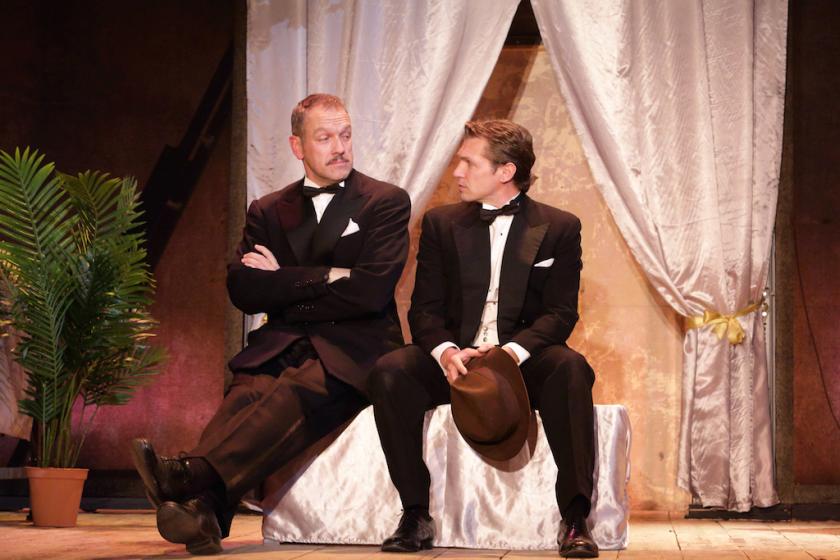One of the oldest and most striking venues in London lends itself to immersive theatrical experiences. A few years ago the Victorian interior of Wilton’s Music Hall was infused with pre-show activity to recreate the 1920s of The Great Gatsby. Now a similar flick of the wrist by the same director draws punters into the 1930s and an adaptation of one of cinema’s great con capers.
To enter the venue for its first show since a major repair job is pretty thrilling, with jazz singers performing in the bars, actors in costume playing cards, the swell of people and music conjuring the milieu of Prohibition Chicago, conmen, gangsters and their molls.
'The Sting' was a successful attempt at recreating one of cinema’s great bromancesUnfortunately, there’s not enough in the budget to recreate the period on stage, where a minimal set design involves metal benches and not much else, and sultry singer-cum-narrator Nina Kristofferson is scripted to tell the audience, “I hope you’ve got imagination”. It’s a disingenuous challenge, of course, since the actors and their director, Peter Joucla, have their own roles to play in transporting us to another era. They do so, to a degree.
The hugely popular 1973 film starred Paul Newman and Robert Redford as the conmen who set out to fleece a gang boss. Writer David S Ward won one of its seven Oscars, for a script that was sublimely light on its feet, despite the complex con at its heart.
David Rogers has based his play pretty faithfully on that script. When talented but naïve grifter Johnny Hooker (Ross Forder) mistakenly cons vicious mobster Doyle Lonnegan (John Chancer), his partner is murdered and he is forced to go on the run. Seeking revenge, Hooker seeks out the help of the consummate conman, Henry Gondorff (Bob Cryer), who agrees to devise a “big con” with Lonnegan as the mark.
The writing and direction are at their best where the material is at its trickiest – the cons. The poker game in which Gondorff feigns drunkenness while reeling in Lonnegan is great fun, as is most of the second act, comprised of cons within cons, all aimed at enticing the gangster to let go of two million dollars.
There’s a likeable energy here, and humour. And it’s a good decision to accompany the action with a live piano accompaniment (courtesy of Ashley Henry), which contributes massively to the jive of the piece, filling the gaps left by the design. But what the production sorely lacks is the kernel of the film – charisma. Coming two years after the success of Butch Cassidy and the Sundance Kid, The Sting was a successful attempt at recreating one of cinema’s great bromances; independently and together, Redford and Newman oozed star quality, backed by an embarrassment of riches in the supporting cast.
It’s unfair to compare, and yet even more than the absence in the play of the film’s signature theme, Scott Joplin’s ragtime classic The Entertainer, one does miss that kind of magnetism and personality in the cast. The exception is John Chancer, whose Lonnegan exudes both malice and the sort of greed that is the essential requisite of the perfect "mark".















Add comment